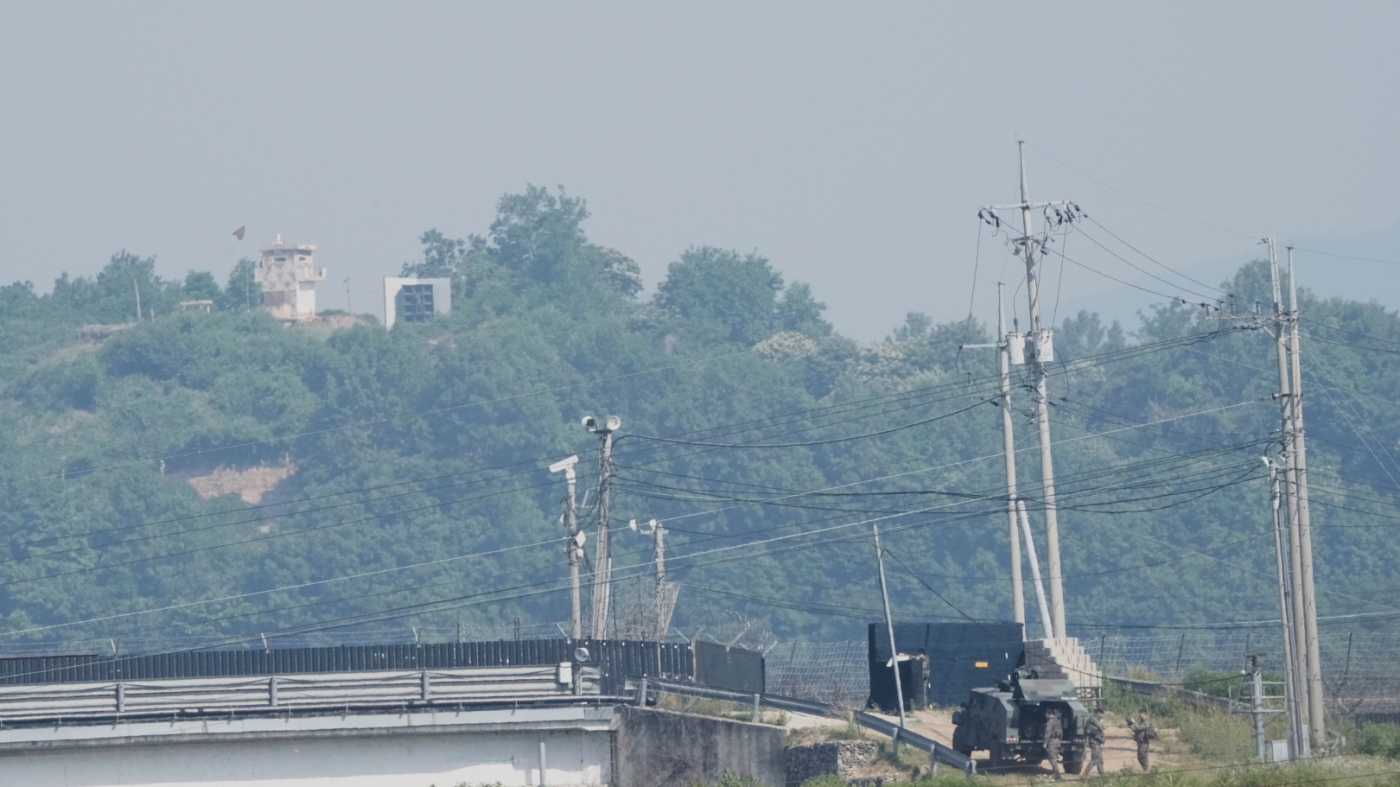The Demilitarized Zone (DMZ) is a stark reminder of the division that has plagued the Korean Peninsula for nearly seven decades. Stretching 250 kilometers across the width of the peninsula and extending 4 kilometers deep on either side, the DMZ is a heavily fortified barrier that separates North and South Korea. Despite its name, the DMZ is one of the most militarized borders in the world, bristling with soldiers, landmines, barbed wire, and advanced surveillance technology. The DMZ is not just a physical barrier but also a psychological one, symbolizing decades of hostility, mistrust, and ideological conflict. The recent defection of an unidentified North Korean man across this heavily guarded border raises critical questions about the motivations behind such a perilous journey, the security implications of the crossing, and the broader context of inter-Korean relations.
The Gauntlet: Understanding the DMZ
The DMZ was established in 1953 following the Korean War, which ended in an armistice rather than a formal peace treaty. The Military Demarcation Line (MDL) runs through the center of the DMZ, marking the actual border between the two Koreas. The DMZ itself consists of two kilometers on each side of the MDL, creating a buffer zone that is heavily guarded by both North and South Korean forces. The area is fortified with fences, tank traps, minefields, and guard posts, making it one of the most dangerous borders in the world. The terrain within the DMZ is rugged and densely vegetated, adding another layer of difficulty to any attempted crossing. The DMZ is not just a physical barrier but also a psychological one, embodying the deep-seated hostility and mistrust that have defined inter-Korean relations for decades.
Motivations: Why Risk Everything?
The decision to cross the DMZ is not one made lightly. The risks are immense, and the chances of success are slim. Yet, individuals continue to attempt this perilous journey, driven by a combination of economic hardship, political repression, exposure to outside information, and the desire for family reunification. North Korea’s centrally planned economy has struggled for decades, leading to widespread poverty and food shortages. While the situation has improved somewhat in recent years, many North Koreans still face significant economic challenges, fueling a desire for a better life. The authoritarian regime in North Korea severely restricts personal freedoms, subjecting citizens to constant surveillance and harsh punishment for any dissent. This lack of freedom and the fear of persecution can drive individuals to seek asylum elsewhere.
Despite the regime’s efforts to control information, exposure to outside media, often smuggled in via USB drives or DVDs, can shatter the carefully constructed image of North Korea. This exposure can lead to disillusionment and a desire for a different life. Some defectors may have family members who previously fled to South Korea and wish to reunite with them. This longing for connection can outweigh the risks associated with crossing the DMZ. The man’s attempt to defect is more than a simple act of border crossing; it is a personal and political statement. He took an enormous risk, with the potential reward of freedom.
Security Implications: A Breach in the Wall?
The successful crossing of the DMZ by a North Korean man raises serious concerns about the security of the border. How did this individual manage to evade detection and navigate such a heavily guarded area? Several possibilities exist. Lapses in surveillance can occur, especially in areas with challenging terrain or during periods of reduced visibility. It is also possible that the defector possessed some knowledge of the DMZ’s layout, patrol patterns, or weaknesses in the defenses. The individual’s motivation and determination could have played a significant role in overcoming the obstacles. A person driven by a strong desire for freedom might be willing to take risks that others would not. Experts have suggested that at least some crossings may be accidental, occurring as North Korean troops add anti-tank barriers and plant mines near the DMZ.
Regardless of the specific circumstances, this incident underscores the need for constant vigilance and improvements in security measures along the DMZ. The DMZ is not just a physical barrier but also a psychological one, symbolizing the deep-seated hostility and mistrust that have defined inter-Korean relations for decades. The successful crossing of the DMZ by a North Korean man is a powerful symbol of hope and a reminder of the enduring human desire for freedom. While the DMZ remains a formidable barrier, it cannot completely block the flow of information and ideas. This defection is a testament to the resilience of the human spirit and the yearning for a better life, even in the face of seemingly insurmountable obstacles. It also highlights the ongoing need for dialogue, reconciliation, and ultimately, the peaceful reunification of the Korean peninsula. The story of this man, whose name remains unknown, is etched into the larger narrative of a divided nation, a narrative filled with both sorrow and the unwavering hope for a hope for a future where such desperate journeys are no longer necessary.











